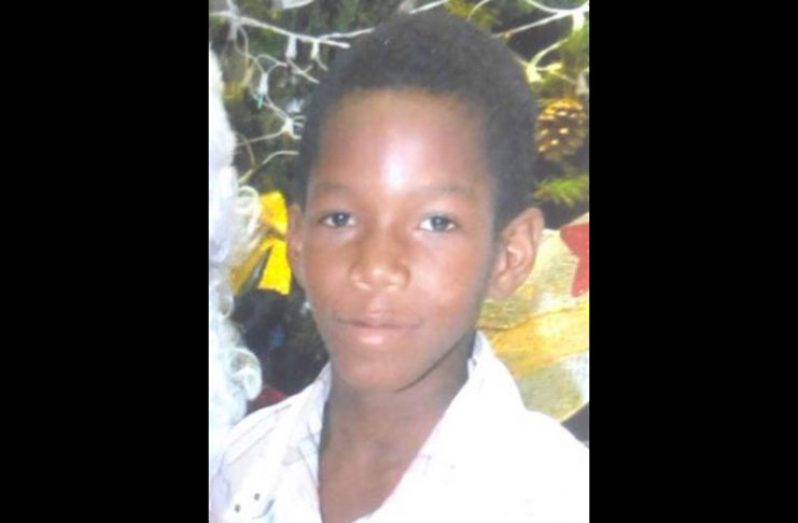— attorney general says any change requires widespread consultations
By Alexis Rodney
THE thousands of online petitions for the restoration of the Death Penalty in Guyana may not bear any fruit at this time, as Attorney General and Minister of Legal Affairs, Basil Williams said there still needs to be widespread consultation on the issue.
There is a moratorium in place since 1997 and President David Granger himself has made it clear that he has no intention of taking anyone’s life. Human rights activists continue to be angered by judges here who hand down death sentences and have railed against successive governments for still having capital punishment on the law books.
Guyana is also party to the International Covenant on Civil and Political Rights (ICCPR). Article 6 protects the right to life. It does not make the death penalty illegal, but it imposes a treaty obligation on states to proceed to complete abolition of the death penalty. President Granger made it clear last year that he does not intend to sign the order of execution of any prisoner, even though no concrete decision has yet been made as to whether his government intends to abolish the death penalty.
“I don’t have any intention of executing anyone…some members feel that the death penalty is a deterrent, some members feel that it is not a deterrent. But David Granger doesn’t have any intention of approving the execution of anyone.” The President had said back in 2016.
However, following the gruesome death of 13 year old Leonard Archibald of Brothers village East Bank Berbice last week, Guyanese took to social media requesting signatures to a petition calling on government to restore the death penalty. They deemed the acts allegedly carried out by the two accused Nicholas Christopher and Hillary Edwards as inhumane and ruthless, stating that their actions must be met with death. The two men are accused of raping and killing the teen and dumping his body in the Berbice River between September 17-23. They were charged with murder on Wednesday.
But according to Williams, there is still no formal decision taken in Guyana on the matter. “We have been saying there is still need for consultations. The position is there is a defacto abolition in Guyana by virtue of the fact that that we have not executed a person in almost two decades,” he told journalists on Thursday.
The question of the abolition of the death penalty he said is still something that will be engaging the government and people of Guyana. Guyana has committed to join the worldwide efforts to abolish capital punishment, which is deemed inhumane and completely ineffective in deterring crime. Guyana has not abolished the death penalty, but there is a suspension on its use, despite the fact that criminals are still being sentenced to death. Guyana’s last execution was back in 1997.
More than 100 countries have already made significant strides in abolishing the death penalty, either by law or by practice. According to statistics from a report compiled by Amnesty International, 140 countries have abolished the death penalty in 2014, by law or practice. This is significant given that when the organisation started its campaign against the death penalty in 1997, only 16 countries had abolished this punishment for all crimes. Seven countries that carried out executions in 2013 did not do so in 2014 – Bangladesh, Botswana, Indonesia, India, Kuwait, Nigeria and South Sudan.
Despite the remarkable progress, there was a recorded 28 per cent increase in the number of executions in 2014 when compared with 2013. There were 2466 death sentences in 55 countries in 2014, with a total of 607 executions. This figure excludes China, which executed more persons than the rest of the world combined. The top five countries which still execute prisoners on death row are China, Iran, Saudi Arabia, Iraq, and the USA.
Additionally, seven other countries resumed executions – Belarus, Egypt, Equatorial Guinea, Jordan, Pakistan, Singapore, and the United Arab Emirates. Three years ago, Guyana made a commitment to the United Nations to abolish the death penalty. Attorney General Basil Williams had recently recommitted Guyana to erasing capital punishment from its books.
Guyana’s laws state (without providing for alternatives) that an individual convicted of a capital offence “shall be liable to suffer death as a felon”.
In addition, legislation provides that murder and felony murder in the course of terrorism are “punishable by death.”
While this language is ambiguous, under Article 19 of the Criminal (Offences) Law, courts may not substitute punishments not specifically stated for death-eligible offences, so courts appear to have no discretion in sentencing.
Article 164 of the Criminal (Procedure) Law provides that when a person is convicted of an offence punishable by death, “the Court shall thereupon pronounce [the] sentence of death.”



.jpg)










